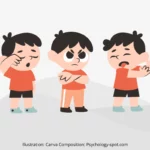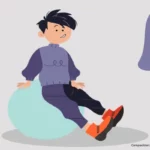
“Modern parenting is in crisis. Parents put more time and effort into raising their children than ever before, but children’s self-esteem, resilience and wellbeing don’t appear to be improving,” wrote psychologist Judith Locke.
In her clinical work and as a researcher, she has found a troubling link between this hard-working parenting and poor child outcomes. She believes parents are making life so easy for their children that they end up raising a “bonsai child.”
What is a bonsai child like?
The art of bonsai originated in China, about two thousand years ago. It was Taoist monks who dedicated themselves to cultivating these miniature trees, which can only thrive with a lot of care. Techniques such as transplanting, pruning, wiring or even shaping are essential to make the tree grow, but only within certain limits and following a predetermined shape.
That is precisely what many parents try to do: raise the perfect child. And to achieve this they try to control all possible factors, so that nothing “affects” child development. Therefore, a bonsai child is one who has been raised in a hyper-protective environment, satisfying his every whim and avoiding at all costs those situations that may generate negative emotions.
As a result, these are children who have not developed the emotional and social skills appropriate for their age. Bonsai children tend to have more separation anxiety, probably because they are excessively dependent on their parents, as revealed by a study carried out at the University of Cambridge.
They also have a low perception of self-efficacy; That is, they do not believe that they are capable of facing problems alone, which is due to the few real opportunities they have to test their abilities. In addition, they are more likely to suffer bullying because they have not developed their social skills – which normally act as a protective barrier against bullying.
In many cases, bonsai children also develop a certain egocentrism. The fact that their parents are always available to satisfy their needs – and whims – in order to prevent them from getting bored, frustrated or sad, leads them to think that they are the center of the universe.
They expect others to make them happy and pave their way to success, so they can become quite demanding and irascible. In the long run, this egocentrism generates conflicts with their peers and becomes a hindrance to adapting to social life and having authentic success.
Hyper protection = Hyper error
The tendency to raise a bonsai child is rooted in society’s deep rejection of negative emotions and our obsession with happiness. As a result, many parents have begun to worry about developing children’s self-esteem and ensuring that their children experience as little emotional discomfort as possible.
Obviously, no parent wants their child to feel bad, but emotions such as sadness, frustration, disappointment or anger are perfectly normal. The goal is not to avoid them, but to learn to manage them. When you try to raise children in a happy bubble, you limit their ability to develop the skills they need to cope with real life.
On the other hand, the enormous pressure that parents feel not to make mistakes that could cause psychological trauma to their children often pushes them to try to pave the way for them. They become a kind of steamroller to prevent potholes from making them stagger, without realizing that it is precisely those falls that strengthen the little ones.
Obviously, the parents of bonsai children have the best of intentions, they think that the correct way to contribute to the success and happiness of their children is to control even the smallest detail of their environment and develop a millimetric action plan to avoid obstacles, but in the long term they create more problems than they solve. Their attempt to help the little ones ends up hindering their potential.
An explosive combination: High expectations and low results
Hyperprotective parents have high expectations about their children’s performance, but have a low level of demand. In other words, they expect them to go far, but they don’t expect them to do it alone.
This mix of high expectations and the perception of low self-efficacy leads parents to take on all the work, instead of motivating their children to try. They constantly intervene to solve problems that children could solve alone.
For example, many overprotective parents often have conflicts with teachers because they make unreasonable demands. They hope that the school will change its rules to ensure that their children do not have difficulties. In the event of the slightest setback, they demand conditions tailored to their children. That “interventionism” is a compensatory attempt to get the bonsai child to reach certain achievements or milestones, but without having to put in too much effort.
On the other hand, when these parents are faced with their children’s deficiencies or difficulties, instead of adjusting their expectations, they usually seek clinical diagnoses. In this way, sadness turns into depression, any fear transmutes into a phobia, a specific fight turns into harassment, and normal tension turns into anxiety.
Overprotective parents have a tendency to label any difficult and perfectly normal experience as a mental health problem. Of course, it is important to pay attention to the different warning signs so that they can be addressed before they get worse, but parenting requires a careful balance between anticipating problems and allowing children to try to confront them with their own tools because only then will they be able to develop the resilience and other essential life skills.
Children are not bonsai, but rather wildflowers
All parents want the best for their children, but they cannot protect them forever or keep them inside a glass bubble safe from everything. In fact, their task is not even to make their children happy all the time, but to prepare them for life. And often that means letting them make mistakes, get bored, get frustrated, disappointed, or try to solve problems on their own.
Saving them the fatigue of the journey by raising them in happy bubbles prevents them from developing the skills necessary to function in the real world and, at the same time, gaining the confidence and self-assurance they need to face the challenges that will come.
To break this cycle of hyperprotectiveness, parents must take a step back and not offer help before the child asks for it. Sitting next to them all the time and supervising every step they take takes away the psychological oxygen they need to explore.
Therefore, do not try to prevent your children from feeling bad. Instead, help them go through that situation and manage the emotions they feel in the most assertive way. It will be a much more constructive and developmental approach in the long term.
Ultimately, parents must understand that “Children aren’t like bonsai trees, they are wildflowers of an unknown genus and species,” as educator Julie Lythcott-Haims said.
References:
Locke, J. Y. (2015) The Bonsai Child. Queensland University of Technology.
Locke, J. Y. et. Al. (2012) Can a Parent Do Too Much for Their Child? An Examination By Parenting Professionals of the Concept of Overparenting. Journal of Psychologists and Counsellors in Schools; 22(2): 249 – 265.
LeMoyne, T. & Buchanan, T. (2011) Does hovering matter? Helicopter parenting and its effect on well-being. Sociological Spectrum; 31: 399–418.
Ungar, M. (2009) Overprotective parenting: Helping parents provide the right amount of risk and responsibility. The American Journal of Family Therapy; 37: 258–271.
Wood, J.J. (2006) Parental intrusiveness and children’s separation anxiety in a clinical sample. Child Psychiatry and Human Development; 37: 73–87.



